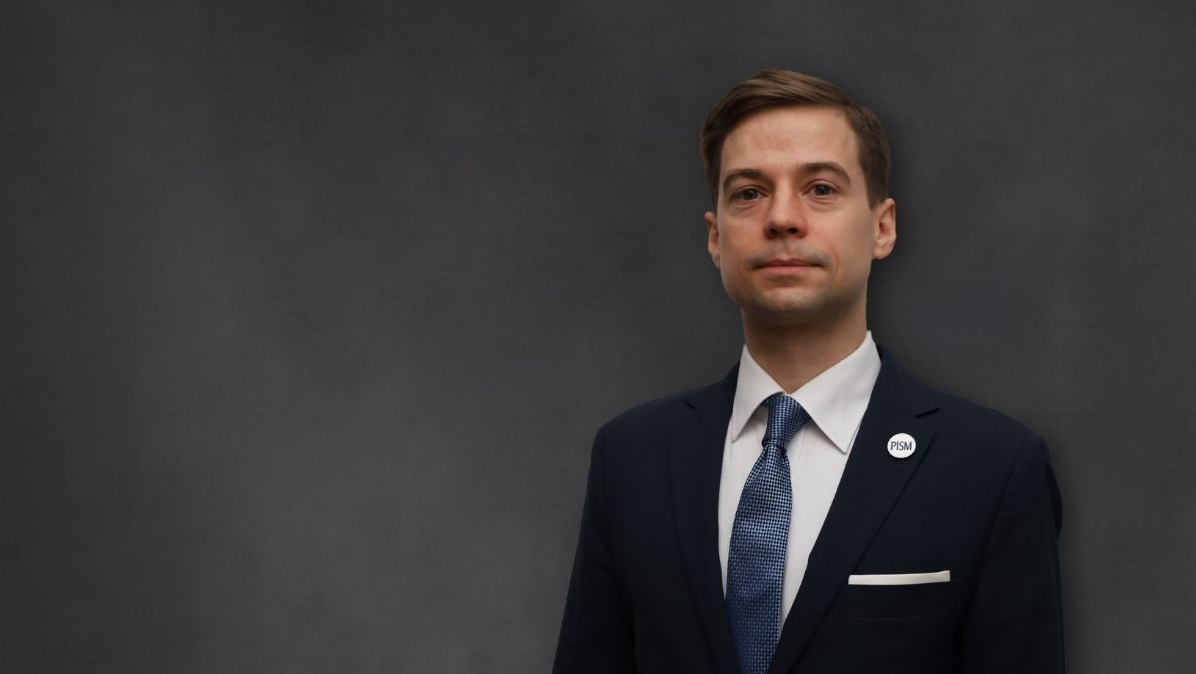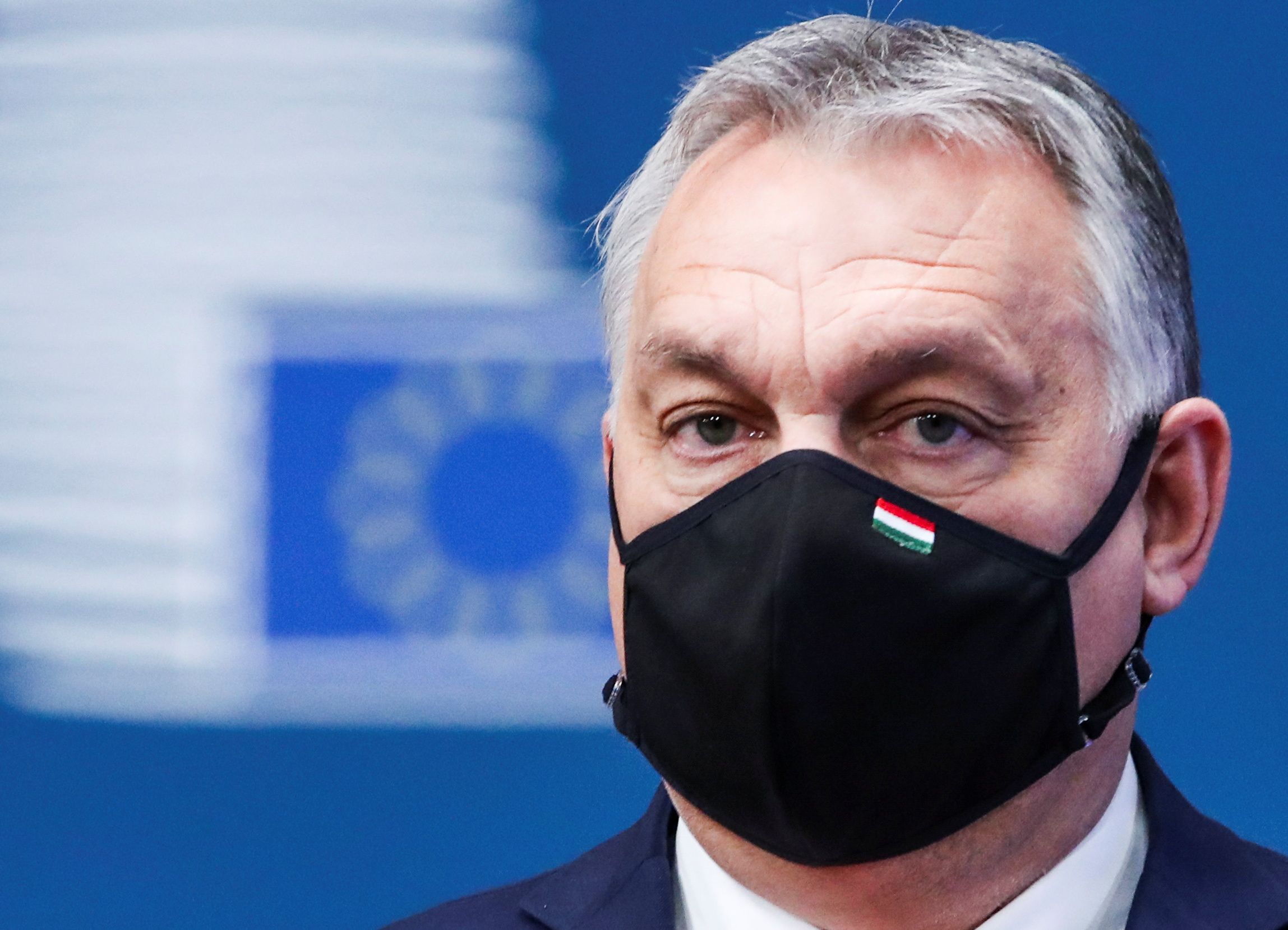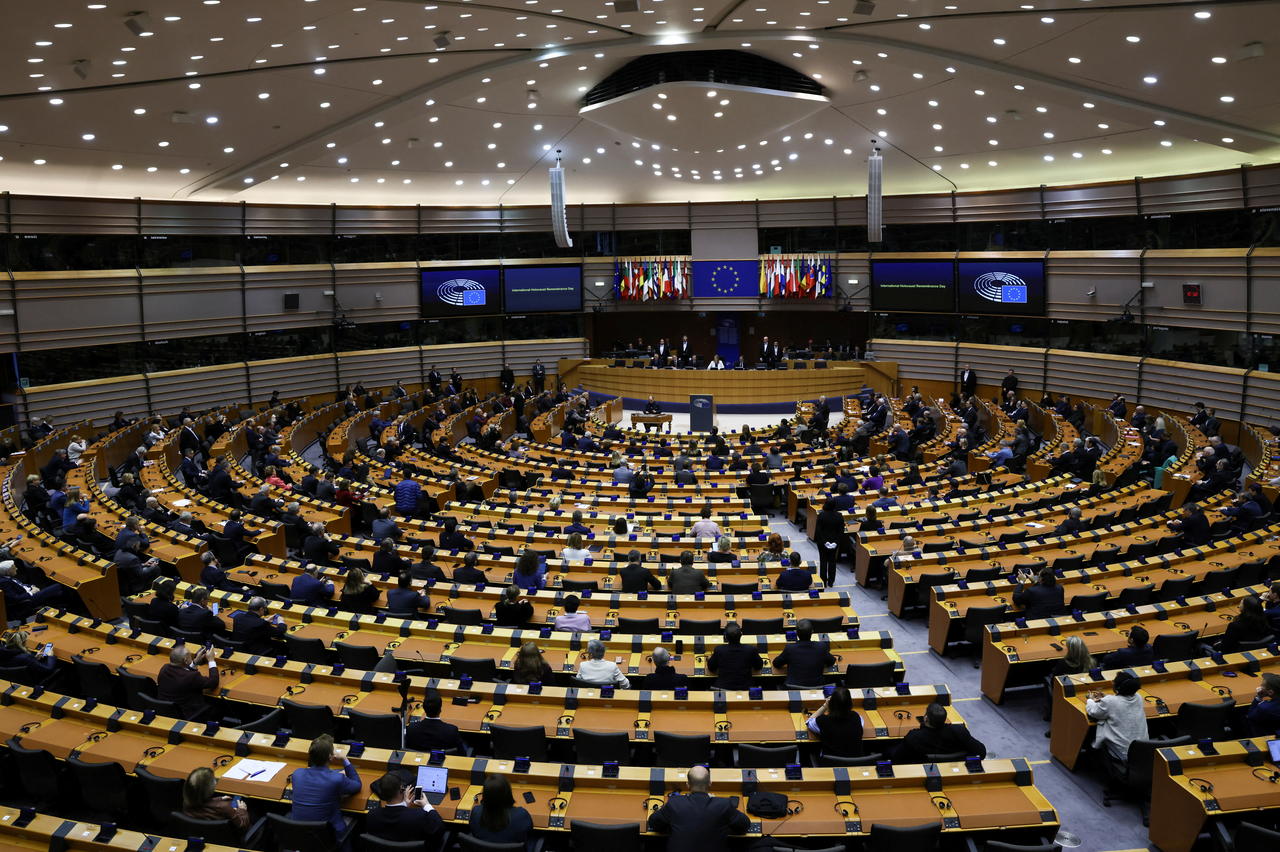EP's Two Largest Parties Again Seek Suitable Partner for After 2024 Elections
Europe’s two largest political parties—the European People’s Party and the Socialists and Democrats—have weakened over the course of the ninth term of the European Parliament, which ends in 2024. If the trends in their support are maintained, the parties will have to do what they did after the 2019 elections and find a partner to form a majority supporting the European Commission. That partner will most likely be the Liberals of Renew Europe (their support in opinion polls has also dropped). However, the declining ratings of the European centre-right have caused the Christian Democrat president to seek allies among the European Conservatives and Reformists as well. However, a coalition of the Christian Democrats, Liberals and Conservatives in the future parliament is unlikely due to internal resistance within the ranks of the first two groups to cooperation with the Conservatives.
.jpg) YVES HERMAN / Reuters / Forum
YVES HERMAN / Reuters / Forum
The Council of the EU has set the date for elections to the European Parliament (EP) for the 10th term for 6-9 June 2024. According to estimates by Europe Elects, if the elections were held in April this year, out of 705 seats, the European People’s Party (EPP) would win 163 seats (19 fewer than it had at the start of the ninth term), the Socialists and Democrats (SD) would win 141 (13 fewer), and the Liberals of Renew Europe (RE) would win 89 (19 fewer). The European Conservatives and Reformists (ECR) would win 85 seats (23 more), Identity and Democracy would win 64 seats (9 fewer), the Left would win 51 seats (10 more), and the Greens would win 49 seats (25 fewer).
Europe’s Largest Parties Declining
The EPP’s weakening position during the EP’s ninth term is due to several factors. In 2021, 12 Hungarian Fidesz MEPs left the party. Moreover, the number of prime ministers sitting in the European Council (EUCO) who come from parties belonging to this group in the EP dropped from 12 in 2020 to 9 today. Among other things, the Christian Democrats lost the German Chancellor, which is crucial in making strategic decisions on European policy. As a result, the EPP’s weaker representation in EUCO has translated into less political support from this institution for the EC’s legislative projects. An example of this was the German government’s attempt to withdraw support (initiated by the German Liberals) for an EU ban on the sale of vehicles with internal combustion engines from 2035.
These challenges prompted EPP leader Manfred Weber to meet earlier this year with the President of the European Conservatives and Reformists and Italian Prime Minister Giorgia Meloni to discuss the possibility of closer cooperation in the new EP. However, the idea was met with opposition from Polish and German EPP deputies, among others. Critics of rapprochement with the EPP point to the participation of far-right parties in Meloni’s political group (such as Spain’s Vox) and see attempts as a violation of the so-called cordon sanitaire, a principle present in the political culture of numerous Western countries (including France and Germany) that extreme groups should not be legitimised by allowing them to co-govern.
The EPP is taking steps to counteract the decline in support. One of them is positioning itself as a party that favours farmers, manifestations of which could be seen at the party’s recent congress. A practical expression of this strategy was the party’s withdrawal from parliamentary negotiations on a draft regulation to cut the use of chemical pesticides in half by 2030 and from a regulation to leave to nature a fifth of damaged land by 2030. In the case of the former, the EPP justifies its stance on the grounds of the expected consequences in terms of reduced crop yields, and with regard to the latter, the reduction of agricultural land. Another example of the EPP’s attempts to win over a new right-wing electorate were Weber’s calls to allow EU money to finance various types of border fences on the EU’s external borders, something that the EC President Ursula von der Leyen has so far ruled out.
In turn, the challenge to the SD, in addition to falling support, is the Qatargate corruption scandal. Prominent party deputies are facing accusations, including former EP Vice President Eva Kaili. However, the image crisis affecting the European Socialists is felt primarily in the Member States from which the accused come, namely Greece, Italy, and Belgium. The Socialists are trying to rebuild their position by portraying themselves as a group resolutely fighting this corruption scandal—the SD’s proposed institutional changes in the EU are more radical than those prepared by EPP parliamentary speaker Roberta Metsola. In addition, the party opposes the attempt to base the future EC on cooperation with the ECR.
Control of EU Institutions
The composition of the future parliament will affect the distribution of key positions in EU institutions, including the presidents of the EC and the EP. MEPs will most likely try to introduce a system of leading candidates (Spitzenkandidaten). This means electing the EC president from among the candidates put forward during the EP election campaign by the participating European parties. Although not directly regulated by law, this system’s proponents invoke Article 17(7) of the Treaty on European Union (TEU), obliging the EUCO to take into account the results of the EP elections when nominating a candidate for EC president. Precedent on this issue was set in 2014 when EUCO put forward the candidacy of Jean-Claude Juncker, the EPP’s leading candidate, for EC president. Although it was not repeated in 2019, European deputies, mainly those from the three largest parties, are trying to turn the 2014 precedent into a rule. However, the chances of putting this idea into practice are slim as there is no political will on the part of the majority of Member State governments to put the decision regarding the EC president in the hands of European political parties. Under the TEU, it is the states in the EUCO that have the decisive role in presenting a candidate for the post. However, the potential controversy over the concept of leading candidates would have been lessened if the EPP nominates current EC President von der Leyen as its leading candidate (she has not yet announced her decision to run again). This is because she has already received the support of Member States and her tenure as president is viewed positively, so her candidacy would most likely receive broad support in the EP.
Conclusions and Outlook
The EP’s term starting next year will most likely again see the formation of an agreement between the EPP, SD, and RE. A repeat of the situation in which the Christian Democrats and Socialists will need a third partner to form a majority will indicate a trend of weakening the historical dominance of these formations in European politics. Indeed, from the first general elections to the EP in 1979 until 2019, they held an absolute majority in the EP.
The EPP president’s attempts to seek another partner to the right of the Christian Democrats—at the price of cooperation with far-right parties such as Vox—will be further contested within his own party. However, even if Weber were to succeed in overcoming internal resistance within the EPP, which is unlikely, the chances of actually forming an EPP-RE-ECR majority are slim. Admittedly, if current polling trends continue and the ECR’s support grows, such a centre-right coalition is likely to have the necessary number of MEPs, but RE representatives (e.g., party leader Stéphane Séjourné) have already declared that they would not be part of such a majority, judging it to be contrary to the liberals’ goals and values.
Regardless of the fact that negotiations between the EPP, SD, and RE will remain crucial in building a majority in the EP, the political importance of the broad right will increase. The EPP, which is the largest in the parliament, will find it easier to lean on the possible need to cooperate with the strengthened Conservatives in case of disputes over individual amendments. Such situations are already happening, such as in the vote on the report on the EU’s 2024 budget guidelines, when the EPP, in cooperation with the ECR, pushed through an amendment allowing EU funding for the construction of walls on the EU border to keep out migrants (although the entire report was later rejected).





